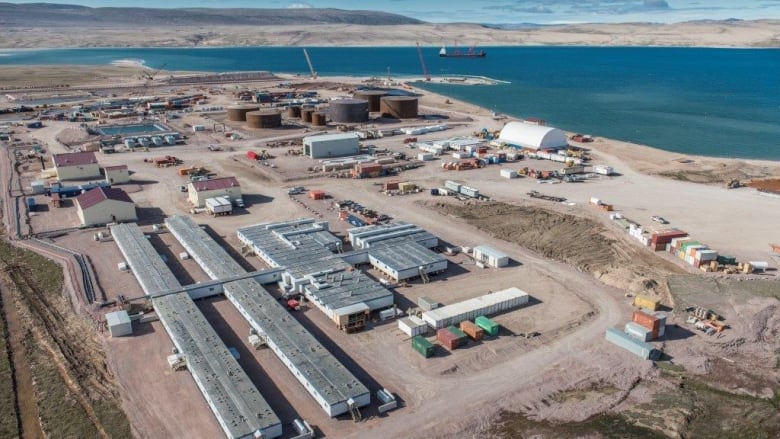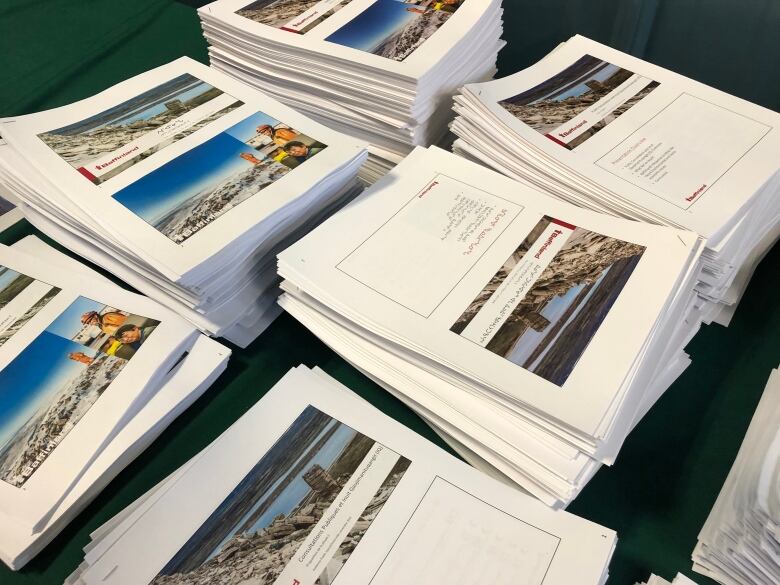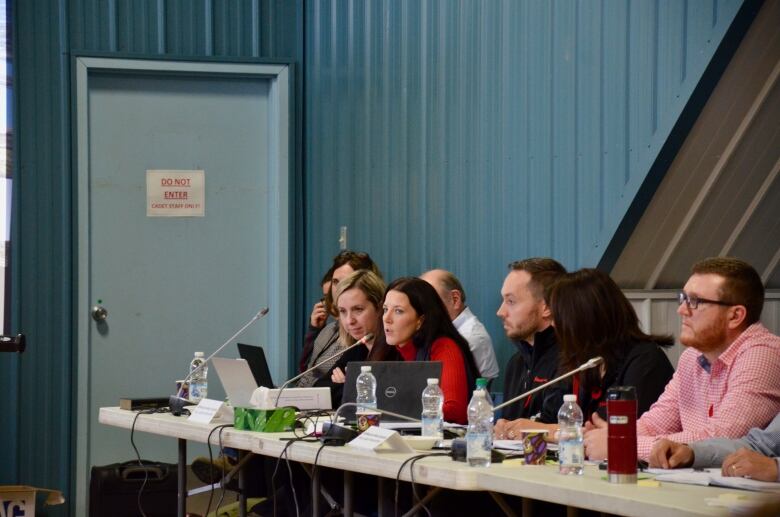Environmental review of Nunavut mine stalled by pandemic
Pond Inlet hunters say teleconference for Mary River expansion would have infringed upon Inuit rights

The Nunavut Impact Review Board says it won't hold public hearings on an expansion at the Mary River Mine until public health restrictions on travel and large gatherings are lifted.
After strong opposition from North Baffin communities, the environmental regulator cancelled a series of eight teleconference meetings for that expansion that were set to start earlier this week.
That expansion, by Baffinland Iron Mines Corporation,looks to see iron ore production at least doubled and a railway built to move that product to port faster.
Joshua Arreak, mayor Pond Inlet, the community closest to the mine, says the communities are distracted by the pandemic. He said many peoplewould have to call from their homes where there are children and other relatives around.
"It would be more suitable to meet in person," he said. "Teleconferences and video conferences are not always available. And COVID-19 is really the reason, and this is not over yet."
Nunavut's first case of COVID-19 was reported in Pond Inlet on Thursday.
Arreak's message to the impact review board was echoed by all North Baffin communities affected by the Mary River expansion. Those are Clyde River, Arctic Bay, Sanirajak and Igloolik.
Board knows phone meetings 'imperfect,' but it's trying
The cancelled teleconference follows a failed in-person public hearing that adjourned in November of 2019. Communities said then that information about the expansion, and how it would impact waterways and marine lifewasn't clear, and didn't match what they'd heard before.
Baffinland says that since then, it has held meetings directly with the communities, hosted a workshop at the mine site,and started tele-meetings with communities when COVID-19 restrictions came into place.
The board gave notice of the cancelled teleconferences in a letter dated April 24. In the letter, executive director Ryan Barry reminded parties that it is mandated to be an arm's-length bodyand procedural fairness is what the organization does best.
"During these challenging times, imperfect processes and procedures may become the only mechanisms for continuing the NIRB's (Nunavut Impact Review Board's) work," Barry wrote.
He recognized that hamlets, Inuit organizations and community groups feel they can't meaningfully participate in public hearings right now because of the pandemic, and thatmany people are on the land, for both cultural reasons and to physically distance.

The Nunavut Impact Review Board has previously held teleconference meetings for projects related to theMeadowbank Gold Mine owned by Agnico Eagle Limited, and theBack River Gold Mine owned by Sabina Gold and Silver Corporation.
Hunters groups says phone meetings breach Inuit rights
A lawyer for the Mittimatalik Hunters and Trappers Association says when it comes to consulting with Inuit, tryingisn'tgood enough. The community group said phone meetings go against its rights under the Nunavut Agreement.
"The constitution requires consultation to be effective at all times," said Amir Attaranwith law firm Ecojustice, andaprofessor of law at the University of Ottawa.
"The appropriate thing to do for NIRB was not to try and rush the consultation in a lesser way as by teleconference, but to simply postpone the consultation until such time as NIRB is able to perform its constitutional obligations," he said.
Unable to meet in person with their colleagues, Attaran said Inuit groups won't be able to prepare for hearings, or talk amongst each other about how to respond.
The Mittimatalik Hunters and Trappers Organization, along with other community harvester groups and municipalities, said translations may be lost or not happen, and that basic infrastructure needed for telework isn't there.

BaffinlandIron Mines says it's prepared to make that equipment available, and will reach out to the communities soon to see what their technical challenges are.
Megan Lord-Hoyle, vice president of sustainable development for the company, says a production increase and related railway are critical to the mine's viability.
"I believe that there are still ways that all parties can communicate and can continue to hold the important conversations that would have been held in an in-person format," she said.
For now, the expansion hearings are on hold as the territory adapts to the pandemic.
The impact review board said parties ready to go ahead will have to be patient, despite the "unwelcome delay."












_(720p).jpg)


 OFFICIAL HD MUSIC VIDEO.jpg)
.jpg)



























































































